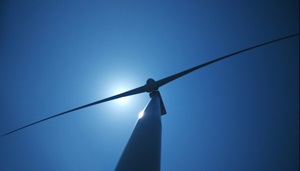- Energy Technologies
- Energy Technologies
- Policy Regulation
- Renewable Energy
- Renewable Energy
- Wind Power
Wind PPAs Offer Exciting Prospects for Scandinavian Data Centers

Social media conglomerate Facebook signed a 15-year power purchase agreement (PPA) with Norwegian wind farms to power its data centers in Denmark and Sweden. The $470 million Bjerkreim cluster of wind farms is located in southwest Norway (at Gravdal, Skinansfjellet, and Eikeland-Steinsland).
Details on the Wind-Powered Data Centers Deal
As per the agreement, 1,000 GWh per year of wind-powered electricity will be delivered to Facebook’s data centers from wind farms that will start commercial operations in 2019. Powering the project are 70 units of Siemens Gamesa turbines—each with 4.2 MW capacity—which will be developed by Norsk Vind Energi. The operational plants will be owned by German renewables investor and asset manager Luxcara GmbH. Facebook has partnered with Vattenfall to manage its grid integration and deliver its 100% renewable power requirement in the region.
Momentum Growing for Renewable PPAs
Sustainability strategies and clean energy targets have led to new utility business models, with corporations queueing up to sign long-term PPAs. Long-term agreements provide financial stability and resilience to clean energy projects. These are exciting developments for the Scandinavian wind power market, and they will encourage more project developers to flock to the region.
Key market dynamics driving corporate PPAs in the region include:
- Low energy prices: Electricity prices are on an upward trend in Europe. According to Eurostat, average values of non-household energy varied significantly across the European Union in 2017. They ranged as high as €0.19 ($0.22) per kWh in Germany and €0.25 ($0.29) per kWh in Denmark. Non-household electricity prices across Norway and Sweden have remained low, at €0.08 ($0.09) per kWh, compared to the rest of continental Europe. Norway is also one of the largest generators of clean energy.
- Data center market growth: Unprecedented growth in power requirements across data centers has given a boost to investments in Scandinavia. Since data centers are an energy-intensive application segment, the availability of large open spaces and a cool climate make the region attractive for investors. Norway is now receiving new interests from project developers in China as part of its One Belt One Road initiative. Cisco forecasts around 30 data centers across Europe by 2020.
- Nuclear capacity closures: Sweden’s 2020 plans to divest its nuclear capacity have created an opening for new capacity investments. Two nuclear reactors, Ringhals-1 and Ringhals-2, will stop operations by 2020. A third, Forsmark-1, will reach the end of its designed lifetime by 2040, reducing Sweden’s power generation capacity by a combined 2.7 GW. This creates an acute need for new capacity investments in the country.
- RE100 pledge encourages corporate PPAs: Facebook’s announcement has not come as a surprise, considering other investments in corporate PPAs. Google and Apple, for example, have invested in energy procurement models to keep their data centers running. This activity resulted from the recent sustainability initiative where over 130 companies signed the RE100 pledge to run their operations on 100% renewable energy.
- Supportive legislation: Reductions in energy tax and the introduction of license awards for renewable energy development are key policy drivers across Sweden and Norway. Authorities have awarded a high number of licenses to developers in recent years, and the trend is likely to continue.
Wind Power Has a Future in Corporate PPAs
Wind power will continue to strengthen its position as a mainstream energy source across utility-scale and distributed energy generation. While mature markets will remain attractive for new wind capacity installations, investments across emerging markets are on the rise. Digital innovations, long-term operations and maintenance contractual agreements, and investments in predictive analytics will contribute to the operational efficiency of corporate PPAs for renewable power capacity.